Related Research Articles

The Body Politic was a Canadian monthly magazine, which was published from 1971 to 1987. It was one of Canada's first significant gay publications, and played a prominent role in the development of the LGBT community in Canada.

Lesbian, gay, bisexual, and transgender (LGBT) people in Kenya face significant challenges not experienced by non-LGBT residents. Sodomy is a felony per Section 162 of the Kenyan Penal Code, punishable by 21 years' imprisonment, and any sexual practices are a felony under section 165 of the same statute, punishable by 5 years' imprisonment. On 24 May 2019, the High Court of Kenya refused an order to declare sections 162 and 165 unconstitutional. The state does not recognise any relationships between persons of the same sex; same-sex marriage is banned under the Kenyan Constitution since 2010. There are no explicit protections against discrimination on the basis of sexual orientation and gender identity. Adoption is restricted to heterosexual couples only.

Lesbian, gay, bisexual, and transgender (LGBT) people face widespread prosecution in Egypt.
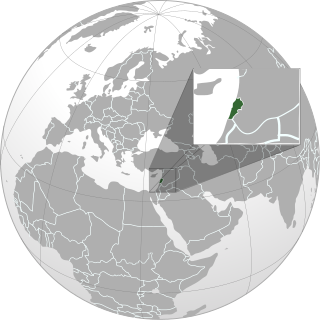
Lesbian, gay, bisexual, and transgender (LGBT) people living in Lebanon may face discrimination and legal difficulties not experienced by non-LGBT residents, although they have more freedom than in other parts of the Arab world. Various courts have ruled that Article 534 of the Lebanese Penal Code, which prohibits having sexual relations that "contradict the laws of nature", should not be used to arrest LGBT people. Nonetheless, the law is still being used to harass and persecute LGBT people through occasional police arrests, in which detainees are sometimes subject to intrusive physical examinations.

The Inside Out Film and Video Festival, also known as the Inside Out LGBT or LGBTQ Film Festival, is an annual Canadian film festival, which presents a program of LGBT-related film. The festival is staged in both Toronto and Ottawa. Founded in 1991, the festival is now the largest of its kind in Canada. Deadline dubbed it "Canada’s foremost LGBTQ film festival."

A Jihad for Love is a 2008 documentary film and was the world's first film on Islam and homosexuality. It took a total of six years to make and premiered at the Toronto International Film Festival in September 2007. It premiered at the Berlin Film Festival in 2008 as the opening documentary film for the Panorama section.
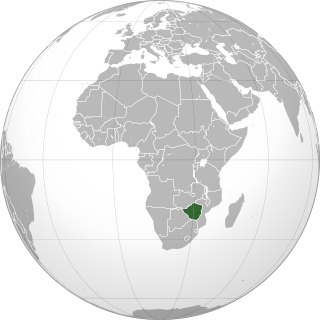
Lesbian, gay, bisexual, and transgender (LGBT) persons in Zimbabwe face legal challenges not experienced by non-LGBT residents. Since 1995, the Government of Zimbabwe has carried out campaigns against LGBT rights. Sodomy is classified as unlawful sexual conduct and defined in the Criminal Code as either anal sexual intercourse or any "indecent act" between consenting adults. Since 1995, the government has carried out campaigns against both homosexual men and women.
This is a timeline of notable events in the history of the lesbian, gay, bisexual and transgender (LGBT) community in Canada. For a broad overview of LGBT history in Canada see LGBT history in Canada.

Lesbian, gay, bisexual, and transgender (LGBT) people in Uganda face severe legal challenges, active discrimination, state persecution and stigmatisation not experienced by non-LGBT residents. Both male and female forms of homosexual activity are illegal in Uganda. Originally criminalised by British colonial laws introduced when Uganda became a British protectorate, these have been retained since the country gained its independence.
Steven Markovitz is a South African film and television producer. He has produced, co-produced and executive-produced features, documentaries and short films. Steven has been producing and distributing for over 20 years. Since 2007, he has worked all over Africa producing documentary series' and fiction. He is a member of AMPAS, co-founder of Electric South & Encounters Documentary Festival and the founder of the African Screen Network.
This is a timeline of notable events in the history of non-heterosexual conforming people of South Asian ancestry, who may identify as LGBTIQGNC, men who have sex with men, or related culturally-specific identities such as Hijra, Aravani, Thirunangaigal, Khwajasara, Kothi, Thirunambigal, Jogappa, Jogatha, or Shiva Shakti. The recorded history traces back at least two millennia.

Stories of Our Lives is a Kenyan film, released in 2014. Created by the members of The Nest Collective, a Nairobi-based arts collective, the film is an anthology of five short films dramatizing true stories of LGBT life in Kenya.
Jim Chuchu is a Kenyan film director, photographer, singer-songwriter and visual artist. He first came to attention as a member of Kenyan music group Just a Band and subsequently as director of Kenyan LGBT film Stories of Our Lives.
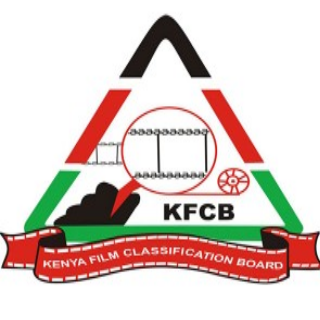
The Kenya Film Classification Board is a state corporation that operates under the Government of Kenya whose mandate is to "regulate the creation, broadcasting, possession, distribution and exhibition of films by rating them." The Board was founded in 1963 with the commencement of the laws outlined in the Films and Stage Plays Act of 1962 and has since involved itself in the rating and classification of films and television programmes. More recently, it has caused controversy by banning several films, such as the American box office success The Wolf of Wall Street, the Kenyan film Stories of Our Lives, Rafiki, and the 2015 film Fifty Shades of Grey based on the novel of the same name. The Board has also regulated television content, including advertisements.
Tuko Macho is a Kenyan web series, which premiered in 2016. A dramatization of Kenya's issues with crime and vigilante justice, the series centres on a vigilante gang who kidnap criminals in Nairobi, and asks viewers to vote on their execution or release.
This is a timeline of notable events in the history of non-heterosexual conforming people of African ancestry, who may identify as LGBTIQGNC, men who have sex with men, or related culturally specific identities. This timeline includes events both in Africa, the Americas and Europe and in the global African diaspora, as the histories are very deeply linked.
The following list is a partially completed compilation of events considered to have a profound effect on the welfare or image of Tamil sexual minorities. The use of bold typeface indicates that the event is widely considered to be landmark:
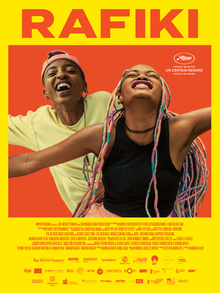
Rafiki is a 2018 Kenyan drama film directed by Wanuri Kahiu. Rafiki is the story of romance that grows between two young women, Kena and Ziki, amidst family and political pressures around LGBT rights in Kenya. The film had its international premiere in the Un Certain Regard section at the 2018 Cannes Film Festival; it was the first Kenyan film to be screened at the festival.
Njoki Ngumi is a Kenyan filmmaker and doctor. As a member of arts collaborative The Nest Collective, Ngumi has been involved in film, music and other art projects in Kenya. She is the screenwriter of Stories of Our Lives, a 2014 film recounting the experiences of LGBT Kenyans that was awarded the Teddy Award Jury Prize in 2015.
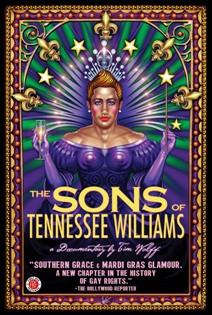
The Sons of Tennessee Williams is a 2010 American historical documentary film produced and directed by Tim Wolff. The film spans five decades documenting the gay carnival balls in New Orleans, and the efforts of the gay community to celebrate Mardi Gras, without being discriminated against and without fear of police intervention. It stars Charles Maddox, Tommy Dietsch, George Roth, Don Stratton, Jimmy Keyes, Mike Moreau, John Henry Bogie, Albert Carey, Bianca Del Rio and additional krewe club members that share their memories through interviews and archival footage.
References
- ↑ "In Nairobi, an Art Scene in Transition". The New York Times , June 12, 2018.
- ↑ ‘Stories of Our Lives’ Sheds Light on Kenya’s Gay Community. Variety , September 5, 2014.
- ↑ "Kenya's hit web series where viewers vote for vigilante justice". BBC News, September 5, 2016.
- ↑ "Kenyan filmmakers ‘come out’ ahead of TIFF premiere." Xtra! , September 5, 2014.
- ↑ "Kenyan Film Board Bans TIFF Film 'Stories Of Our Lives'". Indiewire , October 6, 2014.
- ↑ "Breaking: Executive producer of gay Kenyan film arrested". Xtra! , October 15, 2014.
- ↑ "Kenyan fashion designers respond to not being “African enough”". Quartz Africa , September 30, 2017.
- ↑ "MOVIE REVIEW: Let this be a warning!". Daily Nation , August 5, 2017.